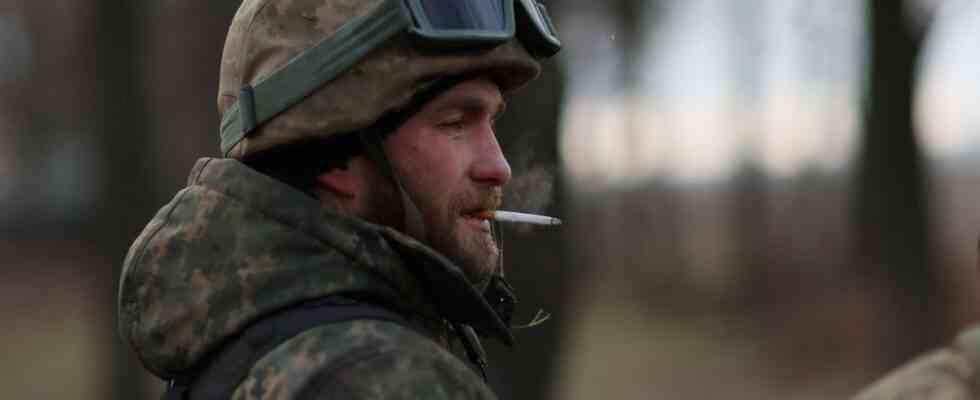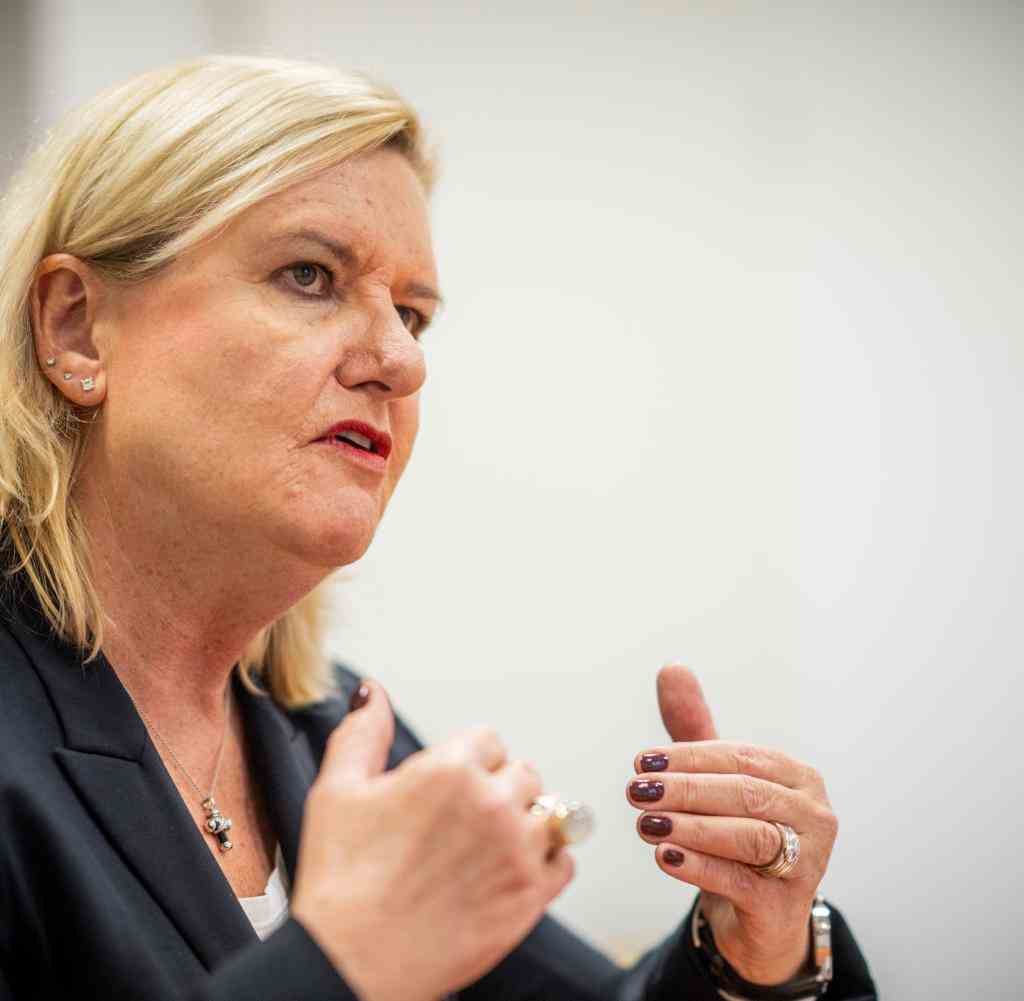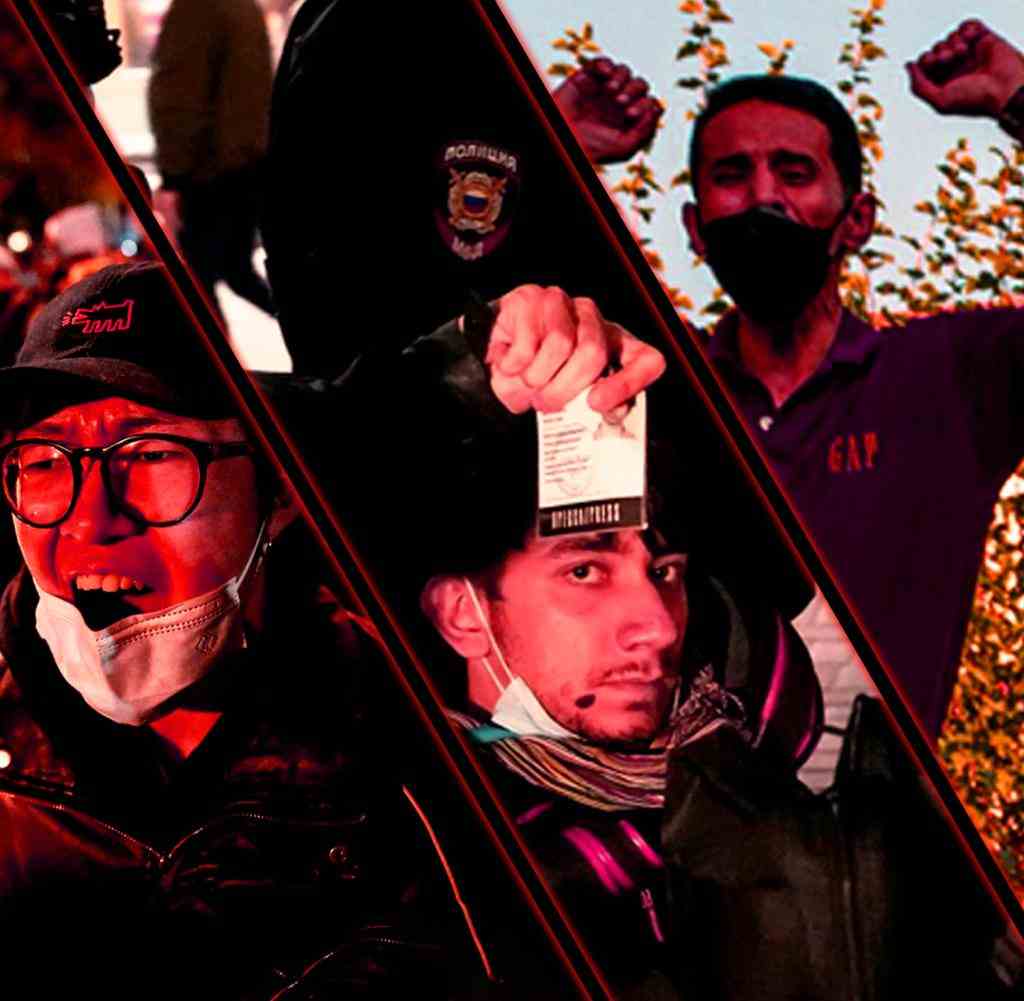DAccording to British experts, the Kremlin will find it increasingly difficult to justify the war in Ukraine to its own people. This emerges from the daily intelligence update from the Ministry of Defense in London on the Ukraine war on Sunday. “Given that Russia is unlikely to achieve any significant battlefield successes in the coming months, it is likely to be increasingly difficult for the Kremlin to garner even the tacit approval of the population,” the statement said.
According to the British, leaked data from Russian authorities shows that only a quarter of the population in Russia now supports the aggressive war in Ukraine. At the beginning of the war it was still 80 percent. However, the partial mobilization in September made the war felt for many people.
The British Ministry of Defense has published daily information on the course of the war since the beginning of the Russian war of aggression against Ukraine at the end of February, citing intelligence information. In doing so, the British government wants to both counter the Russian portrayal and keep allies in line. Moscow accuses London of a targeted disinformation campaign.
All developments in the live ticker:
12:51 p.m. – Map with the current front line:
The current situation in Ukraine
Source: Infographic WORLD
12:50 p.m. – German Ambassador: Expect momentum from Ukraine refugees
According to the German ambassador in London, the federal government expects a large number of refugees from Ukraine in the coming weeks. Russian President Vladimir Putin continues to terrorize the civilian population in his neighboring country, Miguel Berger told British TV channel Sky News on Sunday. Russia has been waging a war of aggression against Ukraine since February and has recently been increasingly attacking electricity and thermal power plants.
“We are very concerned because these attacks on energy infrastructure mean that many people in the freezing temperatures could be forced to leave Ukraine,” the diplomat said, adding: “We expect a further surge of refugees in the coming weeks.” There is currently no reason for optimism that the war can be ended through diplomatic means, Berger continued.
10:47 am – US intelligence chief expresses optimism about Ukraine’s success
US Intelligence Director Avril Haines has expressed optimism about Ukraine’s prospects against Russia in the coming months. Haines said in California that the pace had slowed during the war. Both Ukraine and aggressor Russia would likely want to prepare for a possible Ukrainian counter-offensive in the spring. But it is questionable whether Russia will be able to do this. “And I’m more optimistic for Ukrainians in this timeframe.”
9:30 a.m. – Lithuania is waiting two more German self-propelled howitzers for Ukraine
Lithuania sent two more German self-propelled howitzers back to Ukraine in 2000 after being repaired in the Baltic EU and NATO country. The Ministry of Defense in Vilnius announced on Saturday evening that the two repaired artillery pieces were returned to the country attacked by Russia together with ammunition.
Defense Minister Arvydas Anusauskas announced on Twitter at the end of November that the two howitzers were being repaired in Lithuania. There has been a maintenance center for combat vehicles there since the summer, which was founded by the two German armaments companies Krauss-Maffei Wegmann (KMW) and Rheinmetall.
8:06 a.m. – Military Commissioner wants a multi-year schedule for ammunition procurement
The Parliamentary Commissioner for the Armed Forces, Eva Högl, has called for a fixed timetable for the new procurement of ammunition in the double-digit billion range for the next few years. It is understandable that the industry is demanding binding commitments if it is to increase production capacity now, the SPD politician told the German Press Agency in Berlin.
“We now need a timetable, a coordinated approach with binding agreements with the armaments industry, when which ammunition can be produced, where and in what period of time. That is now the order, best coordinated at European level.”
Defense Minister Christine Lambrecht (SPD) is facing growing criticism because of the Bundeswehr’s ammunition crisis and the lack of artillery shells and rockets. The empty depots have been known for a long time. However, the opposition and the traffic light coalition are becoming increasingly incomprehensible that in the nine months since the start of the Russian war of aggression in Ukraine, little has been ordered.
Eva Högl (SPD), Parliamentary Commissioner for the Armed Forces
Source: dpa/Michael Kappeler
7:00 am – Why the warring factions are slowing down the fighting now
The US intelligence service assumes that the slowdown in fighting in Ukraine will continue. “We’re already seeing a kind of reduced pace of conflict and we expect that to continue in the coming months,” Avril Haines, director of national intelligence, said at the annual Reagan National Defense Forum in California.
Both countries would attempt to stock up on night supplies in preparation for a post-winter counteroffensive. Despite Russian attacks on the Ukrainian power grid and other civilian facilities, there are no signs of a reduced Ukrainian will to resist.
6:32 am – Nasa: Russia has harvested billions worth of Ukrainian wheat
According to the US space agency Nasa, Russia harvested wheat worth around a billion dollars (around 950 million euros) from Ukrainian fields this year. Around 5.8 million tons of wheat have been harvested from fields in Ukraine that are not under the country’s control, said Nasa Harvest, the US space agency’s food security and agriculture program. For the survey, Nasa Harvest uses satellite data and modeling together with several partner institutions.
The scientists involved in the research project estimate that a total of around 26.6 million tons were harvested in Ukraine this year, which is significantly more than previously predicted.
5:11 a.m. – Lithuania is waiting two more German self-propelled howitzers for Ukraine
Lithuania sent two more German self-propelled howitzers back to Ukraine in 2000 after being repaired in the Baltic EU and NATO country. The Ministry of Defense in Vilnius announced on Saturday evening that the two repaired artillery pieces were returned to the country attacked by Russia together with ammunition.
Defense Minister Arvydas Anusauskas announced on Twitter at the end of November that the two howitzers were being repaired in Lithuania. There has been a maintenance center for combat vehicles there since the summer, which was founded by the two German armaments companies Krauss-Maffei Wegmann (KMW) and Rheinmetall.
10:37 p.m. – Macron wants to talk to Putin “soon”.
French President Emmanuel Macron wants to speak on Sunday with the head of the International Atomic Energy Agency (IAEA), Rafael Grossi, and “soon” also with Russian President Vladimir Putin about the safety of Ukraine’s nuclear power plants. After spending “many hours” discussing the war in Ukraine and its effects with US President Joe Biden during his visit to the United States this week, Macron will speak to Grossi again on Sunday, Macron told the newspaper “Le Parisian”.
“On this basis, I will soon be able to have a concrete conversation with President Putin on the subject of civilian nuclear power,” Macron added in the interview. Before that, however, he would also speak to Ukrainian President Volodymyr Zelenskyy about it.
Macron last spoke to Putin in mid-September. Last week he announced that he would soon be in “direct contact” with the Russian President again.
He had previously spoken about possible negotiations in a TV interview that was broadcast on Saturday. In his view, the West must also address Russia’s security needs in peace negotiations to end the Ukraine war. According to Macron, Europe must prepare a new security architecture. He also referred to repeated complaints by Russian President Vladimir Putin about NATO expansion.
“One of the key issues that we need to address, as President Putin has always said, is the fear of NATO closing in on Russia’s doors and the deployment of weapons that could threaten Russia,” Macron said. “This issue will be part of the issues for peace. That is why we need to work out what we are prepared to do, how to protect our partners and member states, and how to give guarantees to Russia once it returns to the negotiating table.”
9:09 pm – US Secretary of Defense: Russia is targeting civilians
According to US Secretary of Defense Lloyd Austin, Russia is deliberately attacking civilians in Ukraine. “With deliberate ferocity, Russia is targeting civilians and civilian targets,” Austin said at a defense forum in the US state of California.
“Kick-off Politics” is WELT’s daily news podcast. The most important topic analyzed by WELT editors and the dates of the day. Subscribe to the podcast at Spotify, Apple Podcasts, Amazon Music or directly via RSS feed.



